Tin Man Brewing Co.
Flora Springs
Trilogy Napa Valley Cabernet Sauvignon Blend 1993
They should have called the Winery Floral Springs based on the nose. Beautiful; blackberry, black raspberries, dark cherries, strawberries, dry cranberries and plum floral fruits. Nice spice, vanilla, touch of clove & cinnamon, used leather, dark rich soil, crushed volcanic minerals, black fruit tea, black raspberry cola and dark fresh florals with violets. The tannins are 95% resolved. The body is lush & ripe. The length, tension & structure are nearing the end. Just a few years left of being worthwhile. However, the balance is stereo tuned. The fruit on the palate shows even more elegant & ripe floral fruits than the nose. Blackberry, black raspberries, dark cherries, strawberries, dry cranberries and plum floral fruits. Nice spice, vanilla, light clove & cinnamon, used leather, dark rich soil, crushed volcanic minerals, black fruit tea, black raspberry cola and dark fresh florals with violets for days. The acidity is like a waterfall. The beautiful, long, elegant finish is a little lean yet has a nice richness. Beautiful wine that just missed 9.2. Photos top to bottom and left to right. The Winery; which is separate from the other tasting room only on Hwy 29. The tasting room on Hwy 29 in St. Helena, Flora Spring caves and the front of their tasting room along Hwy 29. Producer notes and history...the stone winery on the grounds were built in 1885 by two immigrant brothers from Scotland, James and William Rennie. They were in construction, built the winery and planted 60 acres of grapes. The brothers had some bad fortune when phylloxera consumed the vines, and then a fire in 1900 destroyed their wine press and cooperage. In 1904, they sold the winery and fifteen years later Prohibition started. The winery was then closed until 1933. That year, Louis Martini, looked into their magic eight-ball and saw Prohibition collapsing and bought the Rennie property. They built a new stone house and also made a reserve wine from the hillside vineyards. However, the old winery remained empty until the Komes family bought the property, 325 acres, the old farm house, the newer stone house and 60 acres of vineyards. The son thought he’d persuade his dad to restore the old winery and proposed to call it Chateau Jerome. Although it had been designed by Hamden McIntyre an architect of several other classic 19th-century Napa wineries, by 1977, the place was a wreck. The tin roof of the building had so many holes in it. They called it the starlight roof. His father looked at it and stated, “I’ve worked all my life for my good name. I don’t want to squander it now.” John’s mother, Flora, however, sided with her son on the potential of the property. Carrie Komes suggested they could name the winery for her mother-in-law. Combined with the abundant springs on the land, they decided the name would be Flora Springs. It was a sure way to their mom’s heart and father’s wallet. Komes put his construction expertise to work on renovating the old winery, which still had scorch marks on the walls. So skeptical was his father about his son’s wine-making project, they divided the winery building. John rented half where he put his first fermenting tank, which he named R2D2. He invited a couple of friends from his wine-making class to help make wine at the new place. He also hired Mary Ann Graf, who in 1965 had been the first woman to graduate from the viticulture and enology department at UC Davis to help manage the project. She told John, “if you don’t hire a winemaker, I’ll quit.” He did and the 1979 Flora Springs chardonnay won a gold medal at the Los Angeles County Fair. In those days, it was fairs, not ratings. This was his first lesson in marketing as they sadly sold all the wine before they won the medal. Fairs were the big news instead of ratings as Parker had not yet risen to fame as he was the only one to call the grand 1982 Bordeaux vintage correctly. They submitted their 1981 Cabernet to eight fairs and won seven gold medals. From there, the winery just kept growing. They were the 67th winery in the county. Over the years, they had their ups and downs, but kept growing. One of their highlights was the creation this wine, Trilogy. It was one of the first Meritage blends in the valley. By 1984, they planted all the Bordeaux varietals; Malbec, Merlot, Cab Franc, Cabernet Sauvignon and Petit Verdot. They wanted to create a blend “by taste”, not by formula for a nice smooth wine that goes deep into the palate. They worked with a little of this and little of that. The first Trilogy was Cabernet Sauvignon, Merlot and Cab Franc. It was dubbed as velvet in the mouth. A lot of what they do is taming the tannins. One man who bought Trilogy by the case said, “it’s the only red wine his wife would drink young.” From the leftovers, they began making single-varietal estate wines. Another highlight was the discovery of a unique clone of Sauvignon Blanc in vineyards his father bought in Oakville. UC Davis could identify nothing like it in their vast library of clones. They were a bit ahead of the times, but this clone showed Flora Springs how different in that time period what Sauvignon Blanc could be like as it took all the grassiness out of Sauvignon Blanc. — 8 years ago



Bedrock Wine Co.
Ode to Lulu California Old Vine Rosé Blend 2015
Man, do I love sunshine. — 9 years ago
Oomuraya Shuzoba Co., Ltd.
Wakatake Junmai Daiginjo Onikoroshi Sake
Oh man...this will make me drink more Sake. Amazing with our spicy Asian dinner. Serious stuff- easily Premier Cru level, approaching Grand Cru. Sake this good may start a new addiction! — 9 years ago
Tin City Cider Co.
Extra Dry Hopped Hard Cider
Nelson Sauvin and cascade hops. Ultra dry. — 10 years ago
La Jota Vineyard Co.
Heritage Release Howell Moiuntain Cabernet Sauvignon 2008
Enfield Wine Co.
Antle Vineyard Pinot Noir 2016
Smells already heavier and more profound then the Heron. If the Heron is the Musigny this is the Gevrey. Just 13%! Morello cherry 🍒 👃 nose. Darker. A stunning wine! Man in a blind tasting I would think this is a Burgundy. Plenty of acids well balanced touch of bitter perhaps faint pine needles - very ambitious 👏. 💥 💥💥. I do not get the description on the winery website. — 8 years ago
Clarendon Hills
Brookman Syrah 2005
On the nose; ripe, syrupy dark currants, blackberries, sweet slightly liqueured dark cherries, black plum, black raspberries, blue fruits, dark fruit gummy bears, tarry notes, black pepper, soft leather, dry brush, black licorice, caramel, dry crushed rocks, loamy dry top soil, violets, lilacs and lavender. The body is warm, thick, ultra rich, lush & elegant. The tannins are round & velvety but still have strength...50% resolved. It has another 10-12 years of good drinking ahead. The fruits are gorgeous & ripe; blackberries, sweet slightly liqueured dark cherries, black plum, black raspberries & lots of blue fruits & strawberries that paint the palate on the long set. A fair amount of tarry notes, black pepper, dry herbaceous notes (bay leaf), dry black olive, medium dark spice, dark chocolate, caramel, vanilla, clove, soft leather, dry brush, black licorice, dry crushed rocks, loamy dry top soil, violets, lilacs and lavender. The acidity is round & excellent. The long fruit driven finish is beautifully lush, elegant, well structured with near perfect balance. Photos of; Owner/Winemaker Roman Bratasiuk, their old gnarly 80-90 year old and low yielding vines and two of their vineyards. Producer history and notes...Clarendon Hills was founded in 1990 by Biochemist Roman Bratasiuks. Roman sought to further his passion for great wine by making some himself. Roman never trained as a winemaker. He planned on using his insight as a wine taster and scientist alike to dictate decisions. Roman sought to make a version of the wines he loved. The beginnings of Clarendon Hills effectively started in 1989 when he knocked on the door a local grower whose fruit he liked. A great friendship grew from from this by chance knock on the door. A handshake ensued and it became the first Clarendon Hills vineyard. On Saturday 24 February in 1990, Roman with just a bucket and secateurs arrived. Much to the growers shock, he began picking fruit himself. Roman started at 6 am and finished at 9 pm that evening; he picked half the entire vineyard himself and returned on Sunday the 25th to finish it. This process was repeated in a Merlot and Cabernet Sauvignon vineyard which formed the 3 single site wines produced in 1990. Crushing was performed by Roman using empty bottles to squash the fruit in a bucket, then transferred by that bucket, to one of the 3 small ex-dairy tanks all bought for $100 and a quick, non-temperature controlled wild-yeast fermentation ensued. The wines were pressed in a borrowed basket press and matured in 3 separate third-hand barrels. The vintage was finished in 11 days. Much to Roman’s delight the wines were superb and they sold. With the money he bought more buckets, three more barrels and rent for a shed to house wines. The process was repeated the next year and the year after that. Clarendon Hills grew from his determination. This one man had to make wine after work and on the weekends after his 9-to-5 job. A local news paper even ran a story "Tin shed wines take on the world"; which made Roman cringe but slowly Clarendon Hills grew, it afforded him more equipment to make the process less labour-intensive and slowly grow his vineyard repertoire. In 1994, Roman left the Australian Government laboratories and devoted himself to Clarendon Hills 100%. In the 1994 vintage, Roman hired his first employee and rebranded his $30 Clarendon Hills Shiraz as 1994 Clarendon Hills Astralis. It was the first bottle in Australia to be priced at $100. It sold out. Roman went on for many years, making and selling the wines himself. Travelling the world over to show people the wines he made. Roman figured since he made the wine, he was the most logical choice to sell and represent his wine. This worked out so well, he continues to show the wines himself. Clarendon Hills produces; 8 Syrah, 6 Grenache, 3 Cabernet Sauvignon, a Merlot and Mourvedre wine. They are all single vineyards single varietal wines, produced from low yielding, dry grown old vines which are hand pruned and hand picked. All his wines are aged in high-quality French oak barriques. Quite a brilliant success story. This is also another wine I acquired on the secondary market for much less it’s release price and far less than their current release prices. It starts as a 9.3 with a half-hour decant. However, as it gets to an hour and half decant plus, it just gets better & better. Works it’s way to a 9.5 in a hour decant. — 8 years ago
Mica
Napa Valley Cabernet Sauvignon 2014
Best vintage of Mica yet. As good as Tin Man for half the price! — 9 years ago
Bedrock Wine Co.
Old Vine Zinfandel 2014
Old vines, man... Beautiful, big, rich wine. Mentholated, black fruit. Eucalyptus. Herbs. Not terribly fruit forward. Really complex. Gotta lay some down and see what happens. Really great. — 9 years ago
Bevan Cellars
Tin Box Vineyard Cabernet Sauvignon 2014
Finally have a bit of time to update my tasting notes from my visit to Napa the past few days. Did a bit of work for Montagu Wines, and enjoyed a ridiculous amount of wine, and good wine at that.
Russell Bevan is making wine at Brasswood, where we are for Montagu, so it was great meeting the larger than life man that he is. He was kind enough to share a glass of his Tin Box cab with us while we were all together and this wine represents him perfectly. This is a bold, in your face cab, that blows big fruit on the nose, and gripping tannins that want to beat you like a pulp, then let go just as soft as they were strong. Big boy cab, ladies and gentlemen. — 9 years ago
Three (3) Floyds Brewing Co.
Dark Lord Russian Style Imperial Stout
Thank you to my good friend Andy Bunch for bringing this beer to try tonight. A rare treat for sure. Took a while to open up, bit man, it’s hitting its stride a couple hours later with notes of semi sweet chocolate, espresso liquor, brownie batter, vanilla, toasted nuts and almond oil. A rich brew with a 15%+ ABV. Black as old motor oil and super mouth coating. Yum yum yum. — 7 years ago
New Holland Brewing Co.
Dragon's Milk Bourbon Barrel-Aged Stout
I chose the perfect beer to celebrate #NationalBeerDay I was gifted this for my birthday last week and heard nothing but good things and BAY-BEEEE it did not disappoint. 🎶these are a few of my favorite things🎶 I don’t do ice coffee often but if I did, it would this beer. No point in drinking cold coffee if it is not 11% ABV. Dragon’s Milk is dark, toasty (and roasty), rich and heavy! Everything I want in a man, but A👏🏾DAMN👏🏾 BEER👏🏾! Men disappoint, so give me the warmth and familiarity bourbon barrel-aged stout anytime. The smell is perfect and the notes of vanilla and caramel sweeten it ever so subtly. Issa win! #badandboozypod #craftbeerlife #stouts #dragonsmilk #gimmemore #beerreviews — 8 years ago
Tin City Cider Co.
Templetucky Volume 3 Old Bourbon Casks for 4 Months Hard Apple Cider
Hard and hoppy. Damn delicious and one of the most original hard apple ciders I've enjoyed. Yum! — 8 years ago
Bedrock Wine Co.
Weill A Way Vineyard Mixed Blacks Red Blend 2013

Bedrock Wine Co.
Lauterbach Hill Russian River Valley Syrah 2008
From the cellar. Big bold beefy Syrah, iodine, dark fruit just big and lingering in the mouth. Morgan (aka rain man) makes a mean Syrah but this shows they need some bottle age. Beautiful. Too bad he doesn't make this anymore. — 9 years ago
Clos du Val Wine Co.
Reserve Napa Valley Cabernet Sauvignon 1999
Man, for being 15 years old, this was still a beast of a wine. Big, bold, structured, but still had nice acidity. Didn't notice the alcohol, just assumed it would be high given its big, bold nature, but surprised it's at only 13.5%! Lovely wine. — 9 years ago
Granny Shack Wine Co.
Tin Cross Vineyard Cabernet Sauvignon Cabernet Franc 2013
Absolutely crushing it tonight. Blueberry pie, black raspberry, mouthwatering fruit, a perfect amount of acid, biting tannins. Courtesy of the indelible @Thomas Weber — 9 years ago




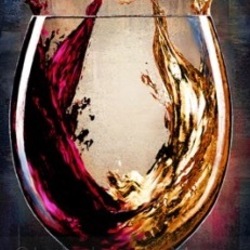


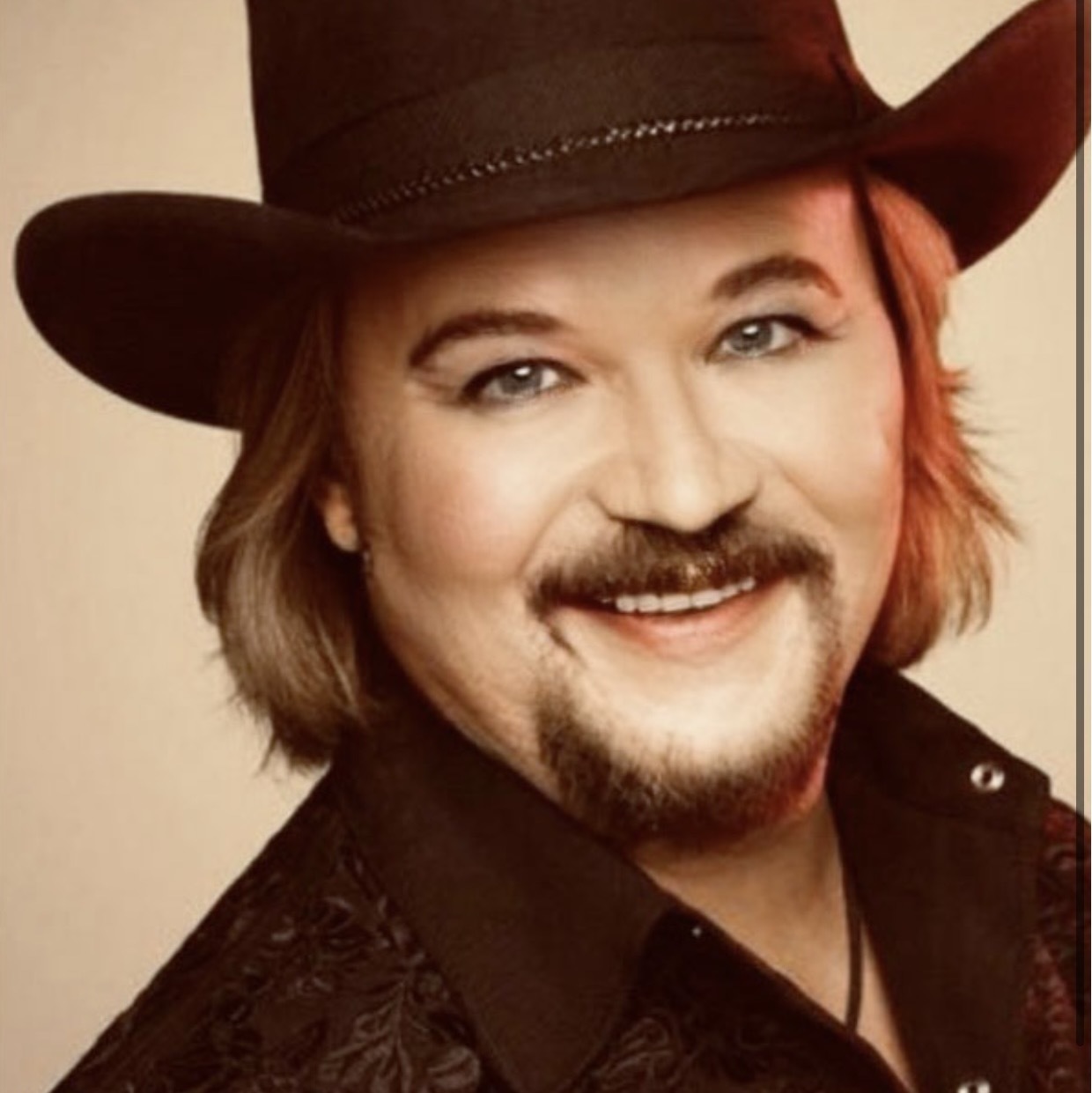


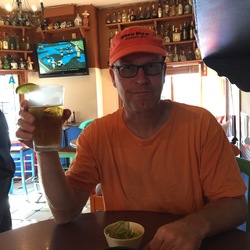
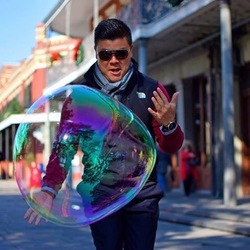

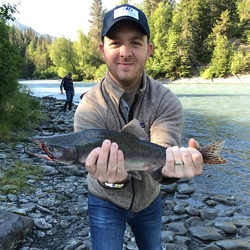


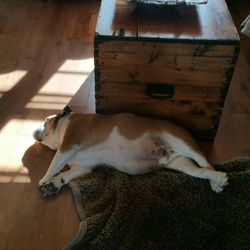






Laura Purdy
I was craving a big Cab tonight and man, this hit the spot. It’s a bit young but is opening up nicely. — 6 years ago